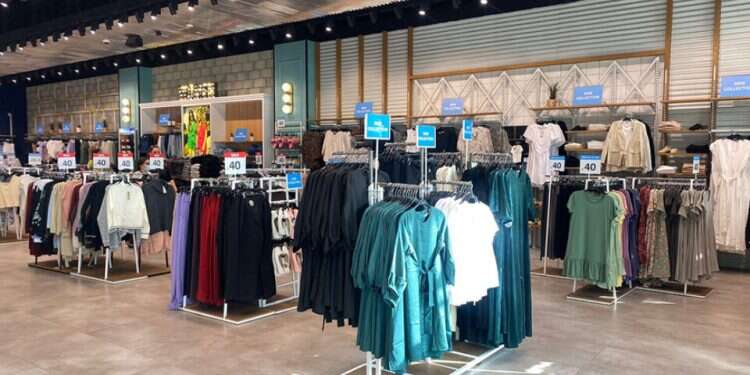Officials in the local fashion industry are growing increasingly concerned over rising import and shipping costs, and note the complex changes the industry is undergoing – from the COVID pandemic to green pass restrictions, to the large number of Israelis who prefer to do their shopping abroad or online.
Follow Israel Hayom on Facebook, Twitter, and Instagram
Baruch Reiner, the CEO and owner of Tamnoon, a clothing chain, told Israel Hayom: "There's this madness going on in the Israeli retail world. It starts with the supermarkets and includes the importers, such as Diplomat Global (a leading sales and distribution company in Israel). It is permeating the fashion market, which is competitive by nature anyway. International chains such as Zara and H&M are 30% more expensive in Israel, even 40%.
"If you speak to the large shopping malls, their forecasts are not the rosiest. There's a smell of a mini-economic crisis in the air plus inflation; the situation in Ukraine and China is also an influence. In April alone, Israelis are expected to spend six billion shekels on trips abroad. Moreover, the improvement of mailing systems will lead to an increase in orders from abroad. Everyone knows that Zara and H&M prices are lower in any European capital. It's become fashionable for people to load their suitcases. We aren't inferior to companies abroad from the perspective of our cost-benefit," said Reiner.
Despite the increased costs of importing and shipping, Tamnoon has lowered prices on all items priced at over NIS 100 in its summer collection. With that, Reiner admits he won't be able to sustain the increased shipping and import costs in his winter collection, and that prices for some items will increase by 3% or less.
"We haven't raised prices. In fact, in the more expensive categories, such as jackets and jeans, we put a serious emphasis on the summer collection not including any items costing in the triple digits. The most expensive item at the beginning of the season costs NIS 95, compared to the NIS 120-130 before."
According to Reiner, "Many chains are raising prices by 10%-20%. Things are more expensive. We lowered the price despite all the difficulties and costs, mainly in terms of shipping prices and with our suppliers abroad. It appears it will be more difficult for us to do this during the winter season because we see that maritime shipping, which we expected to get cheaper, isn't getting cheaper. We are talking about $15,000-$16,000 per container when one year and three months ago it was $2,500. Additionally, all the energy problems in China today have lowered the output of Chinese factories, and this has also led to higher prices."
Subscribe to Israel Hayom's daily newsletter and never miss our top stories!




